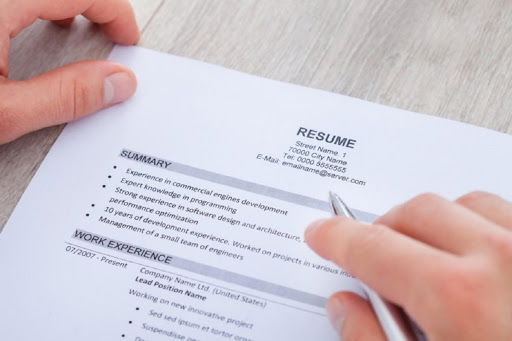17 Résumé Writing Mistakes To Avoid If You Don’t Want To Horrify Recruiters! (3 of 4)
Advertisement
Enlisting the responsibilities

Quite a lot of applicants end up explaining their previous job profiles – the list of responsibilities in their résumé. This isn’t exactly what a recruiter is looking for to read, and it also makes your résumé dull and out of place. It doesn’t convey to the HR manager anything remotely close to what you did during those years at a particular job and if and what you achieved at the company. The recruiter experts urge that applicants should, instead, gear their language more towards their achievements and challenges they accomplished instead of listing vague responsibilities that could cover literally anybody who held that post.
Not mentioning the positions held

Like mentioned in the point related to promotions, it is crucial to enlist your achievements in the positions you held and laying focus on what you actually accomplished, instead of giving out a vague list of responsibilities you were supposed to carry out.
Most recruiters emphasize on the fact that they like to see what an applicant has actually achieved and what kind of results he or she has produced for the previous firms. How did their actions help the company make more money? Or, how did their actions actually improve the efficiency of the firm? If recruiters cannot get an easy answer to at least some of these questions, they tend to ignore your résumé and move on to other résumés on the desk. Also, what an applicant mentions or skips in his or her résumé actually goes a long way in showing what the applicant thinks is important, and what is not. This helps the recruiters make a decision, easily. So, to avoid failing at every job interview, do yourself a favor and include the list of achievements and positions you held at the previous jobs.
Writing for the job you already have

Always remember the fact that the résumé you submit is not meant to be a summary of your prior job experiences. Instead, it needs to advertise why are the right fit for the job and how your skills can be used at the organization. There is a stark difference between the two and applicants often tend to miss that; making their task of finding a job more difficult.
Most job recruiters agree to the fact that a job seeker is not supposed to write for the job they wish they had or want, they have to write for the job they have. Your skills and experience shall be brought forward in such a manner that a recruiter feels that you actually ‘belong’ in that place.
Having a professional objective

There was a time when people actually used to write an ‘objective’ at the top of their résumé, just below the title – a couple of short sentences that focused on explaining the goals and objectives of the applicant for the respective position he or she was applying for. However, this is no longer the norm, and people don’t write that anymore.
Even recruiters do not encourage that. An HR manager who talked to us explains the rationale behind this. He said that in the modern day, a recruiter is more interested in what you bring to the table, rather than what your goals or objectives are. In fact, if you really want to talk positively about yourself at the top of the résumé, you may consider adding a short summary of achievements.
Using the phrase “References available”

Like the ‘objective’ part, this was once the norm, but is not encouraged by the recruiters anymore. Most recruiters concur on the fact that using the phrase ‘references available upon request’ is simply a waste of space in your résumé. The HR manager already knows that you must have some references. So, as and when the recruiter needs it, he will ask for it – no need to mention it as a phrase separately on your résumé.